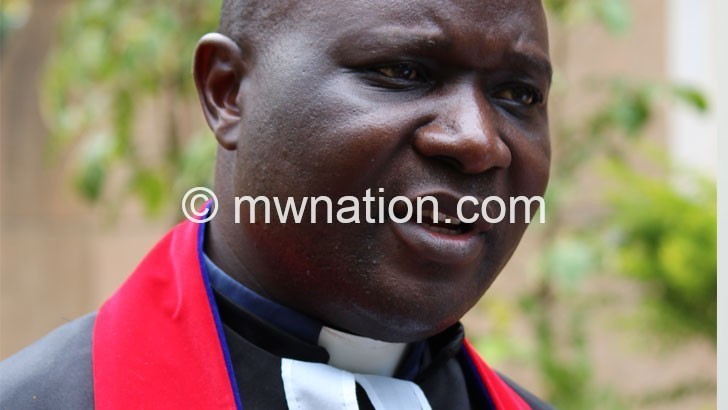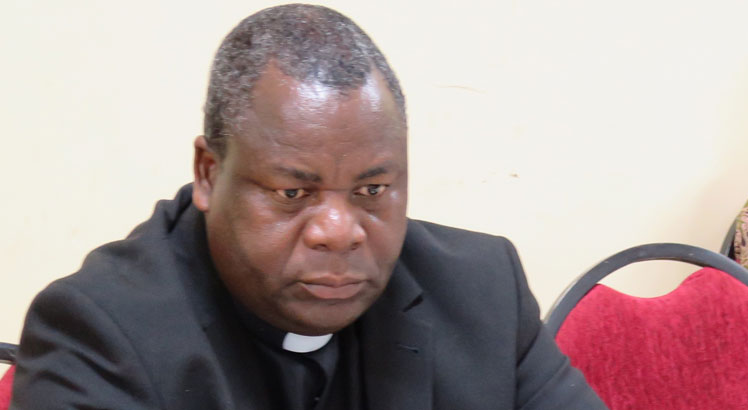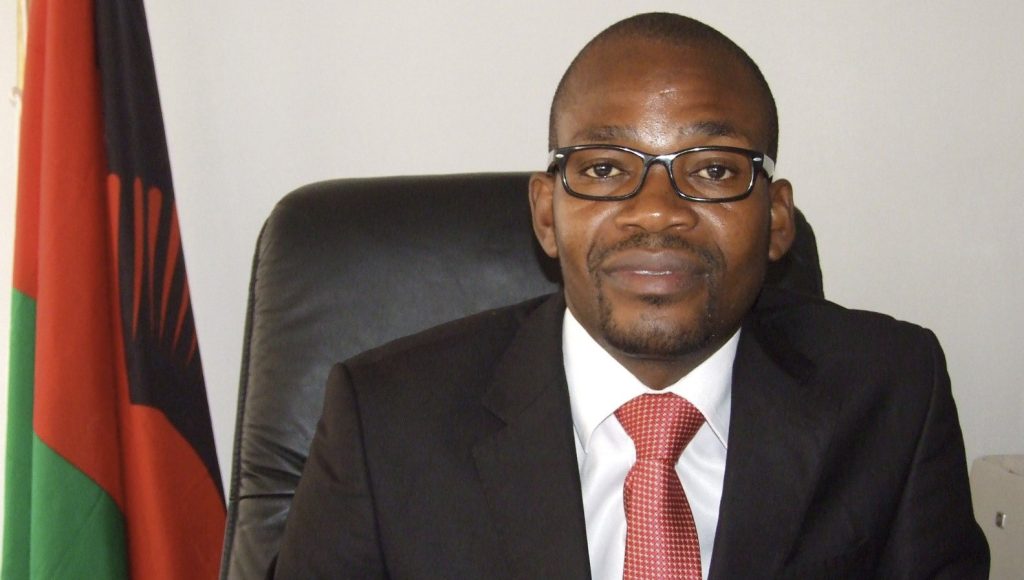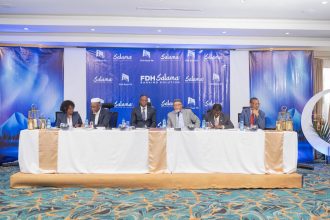Pastors, LGBTIQ and the ‘love thy neighbour’ rule
Of late, there has been a heated debate on the Lesbian, Gay, Bisexual, Transgender and Intersex and Queer (LGBTIQ+) community, with some faith groups speaking against them.
In Chitipa District, members of the clergy, led by Evangelical Association of Malawi (EAM) Reverend Leonard Harawa, marched against same-sex unions. They presented a petition to the district commissioner arguing that the practice is against God’s will.

Harawa went on to suggest calling for a referendum to get the views of the people on the matter.
Mainstream churches, including Catholics, led by president of the Episcopal Conference of Malawi (ECM), who is also the Archbishop of Lilongwe George Desmond Tambala, have also spoken against homosexuality. And the Catholic bishops participated in demonstrations that their faithful organised in collaboration with other faith groups, such as the Malawi Council of Churches, Muslim Association of Malawi and Qudria Muslim Association.
And all that is sad news for someone who asks to be called Albert, a homosexual. Albert, who is based in Blantyre, wonders why religious leaders are hard on them.
“I do not know who we are injuring. Can’t they leave us alone and focus on preaching the word of God. They are making us unsafe,” he says.

Malawian Anglican priest Father Martin Kalimbe agrees with Albert, arguing that the path taken by the faith community to demonstrate is dangerous “as it smacks of homophobia”.
Says Kalimbe: “It will encourage people, even non-believers, to start attacking homosexuals. Already, they are being treated as less-humans, even being called ‘dogs’,”
He warns that the fear the clergy has created will make homosexuals go deeper in hiding, thus make them fail to access health services or even HIV and Aids life-prolonging drugs.

Nyasa Rainbow Alliance executive director Eric Sambisa says the clergy seems to have abandoned their role in society.
He says: “They are supposed to be preaching unity and love, instead of promoting violence.”
Sambisa, whose organisation deals with LGBTIQ+ issues, claims that violence is already being meted against their members.
“Our offices were attacked and some [LGBTIQ+] people are living in fear and are receiving threats.
“All this is blamed on faith leaders who do not want peace for some section of the society,”

Centre for Human Rights and Rehabilitation (CHRR) executive director Michael Kaiyatsa agrees with Sambisa on the danger posed by faith leaders propagating against homosexuality.
Kaiyatsa, whose organisation and Centre for the Development of People (Cedep) have a sensitisation project against abusing and killing of LGBTIQ+ community, the elderly and people with albinism in Mulanje, also accuses the faith community of inciting violence.
He says: “I agree, the demonstrations are likely to fuel homophobia. Religious leaders command a lot of respect and wield so much power and influence in our society. So, whatever they say or do, people will follow and that is disaster.
“These authorities have the responsibility to ensure that religion is not used to promote discrimination against people based on their sexual orientation and gender identity.”
He warns faith leaders against sending wrong messages.
Says Kaiyatsa: “It is also important that religious leaders should avoid sending wrong message that they are selective in their application of the Bible.
“Drunkenness, greed and adultery are also listed as sins but we have not seen them demonstrate.
Kaiyatsa also dismissed the referendum suggestion, saying it will be a waste of time and resources “because the outcome will be obvious”.
He says the majority of Malawians are against homosexuality and that issues of human rights to referenda.
Why now?
Mystery surrounds the source and motive behind the religious anger on homosexuality. Since the matter came to light in 2009 when Steven Monjeza and Tionge Chimbalanga engaged, the faith community has been generally quiet.
What has provoked the situation?
Minister of Information and Digitalisation Moses Kunkuyu, who is also government spokesperson, says there is nothing on the table about homosexuality legalisation. He says government is just watching the developments like anybody else.
“Nowhere has government said it is formulating a bill to legalise homosexuality. As such, there is nothing to comment about. We are learning about these things just like anyone else,” he says.
ECM secretary general Father Alfred Chaima says their action was based on people’s concerns.
Explains Chaima: Our demonstration was not based on what government is doing or intends to do. It was based on what people are saying, and we decided to take a stand.
“We sometimes say things not based on what has happened, but people’s concerns. So, that belief [that government plans to legalise homosexuality] is a misconception.”
The Constitutional Court is hearing case brought by Jana Gonani, a transgender who was charged with “unnatural behaviour” and Jan Willem Akstar who is challenging Sections 153(C) and 156 of the Penal Code which prohibit same-sex relations.
Asked whether by going to the streets, the church has forgotten the message of love towards those they regard as sinners, Malawi Council of Churches chairperson the Reverend Billy Gama says the message is basically not about the LGBTIQ+, but the practice.
He says: What we are talking is about the marriage concept as mandated by God. This is between a man and a woman.
“We have not heard about government planning to take a bill to Parliament to legalise same-sex marriages. We are just expressing our feelings and, probably, raise any thought that it [government] might have about the practice.”
EAM deputy general secretary the Reverend Gray Mwalabu dismisses any suggestion about what happened on Thursday as demonstrations.
“To say they were demonstrations is a little bit harsh. They were just marches in support of marriage, family and human sexuality,” he says.
But human rights activist Undule Mwakasungula has brought religion into the matter. In an opinion, Mwakasungula wonders whether Jesus would have rejected homosexuals.
He says Jesus never discriminated against any group or society “because everyone was created in the image of God”.
He observes: All people were created by God, including Satan himself. Homosexuals are also people created by God and should be loved.
“You cannot say that you love God who you do not see, yet you hate your neighbour who you see.”
Mwakasungula, who says is a born again Christian, says Jesus told His disciples that if they judge others, they will also be judged.
He says: “Matthew 7: 1-2 says: Do not judge so that you will not be judged. For with judgement you make, you will be judged and the measure you give will be the measure you get.
“Luke 6: 37 says: Do not judge and you will not be judged. Do not condemn and you will not be condemned.”
Mwakasungula warns people against behaving like Pharisees and Scribes who, he says, pointed at weaknesses of other people and regarded themselves as clean.





